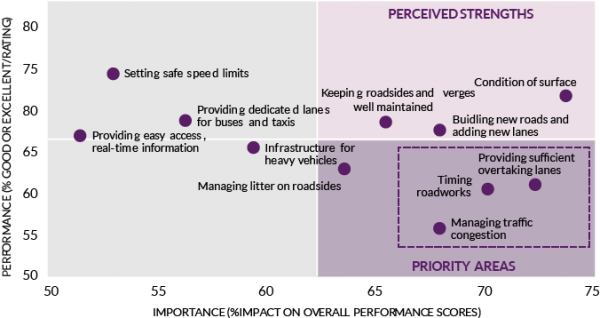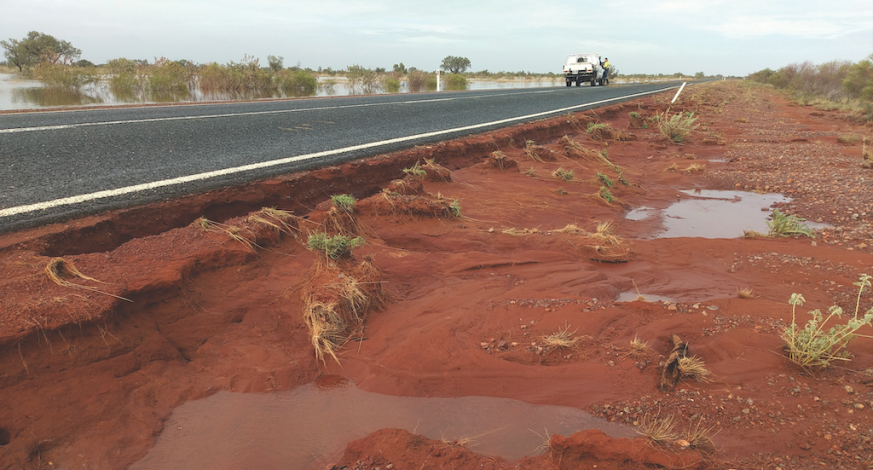Customer Information
We provide a 24-hour-a-day, 365-day-a-year service through our Customer Information Centre (CIC). The CIC plays an important role in state-wide incident response and management, providing timely and accurate information to the public. Our front-line customer service area is also an important information source for road network activity.
Self-service options on the phone continue to improve services for customers. Our call volumes have had a very slight increase during 2019, and our customer interaction via email and digital services continues to rise. In 2019, we undertook work to refine the channels we use for engagement with our customers and to improve the digital experience. This continues to be a key priority as we progress the new website project in 2020.
| Customer Contact Statistics |
2017 |
2018 |
2019 |
| Telephone Calls |
103,531 |
91,573 |
91,732 |
| Calls self-serviced |
16,409 |
11,896 |
14,293 |
| Email enquiries |
30,474 |
32,620 |
53,988 |
| Percentage of enquiries to Customer Information Centre resolved at first point of contact |
73 |
65 |
81 |
Complaints Handling Process
We provide an accessible, fair and equitable complaint handling process, meeting Australian Standard for Complaints Handling, AS ISO 10002 – 2006.
We use our customer information and quality assurance framework to:
- check compliance to process and commitments
- identify staff training requirements
- investigate and resolve reasons for non-compliance
- identify opportunities to improve customer experiences
For more information on complaints or to understand our commitment to follow through on your concerns, please visit our website.
Engaging with Local Communities
Main Roads is delivering an unprecedented program of major infrastructure works across the Perth metropolitan area, with 72 projects in the delivery stage and numerous others at the latter stages of design and development.
We are engaging with distinct communities across 29 Perth metropolitan projects and many more in the regions. Transforming our road network brings with it the challenge of minimising the impacts of construction on local communities in the vicinity of the works and providing timely, ongoing communication to road users.
We are widening key sections of the Mitchell and Kwinana Freeways, upgrading major intersections and enhancing other key arterial routes such as Armadale and Wanneroo Roads to improve safety, relieve congestion and enhance traffic flow.
In the past 12 months we have significantly strengthened contractual requirements for external contractors delivering engagement on our behalf, and put in place forums to encourage cross project collaboration, ensuring communications are delivered in an effective, customer-centric manner. The outcome has been a marked improvement in the quality and consistency of our engagement programs, in accordance with ever-increasing community expectations.
In addition to projects being delivered, future projects have necessitated earlier engagement with stakeholders and the community, fostering better understanding of the works and advocating our broader vision for our State’s road network.
Engaging at an earlier point within the project lifecycle enables us to integrate natural opportunities for regular evaluation following each phase of community input. Structured evaluations of our strategies are included at the end of the planning, development and procurement stages of the project lifecycle, and again at six-monthly intervals during the construction period.
Open and Transparent Project Communications
We provide project information and engagement opportunities reflecting the diverse ways in which communities seek and digest information. We maintain a strong digital presence ensuring changes to the road network can be shared in real-time and we utilise online engagement including community surveys with strong levels of participation.
Our communications include effective use of the portfolio MySay Transport forum, which has encouraged community participation on a number of high profile projects including the High Street Upgrade in Fremantle and our Orrong Road Planning Study.
This has been complemented by encouraging online subscriptions to our newsletters and project updates through our centralised Customer Relationship Management system, and the ongoing restructure of our Projects website to create a more user-friendly customer experience.
Widespread community input – though information sessions, reference group meetings and face-to-
face meetings on projects in both metropolitan and regional areas – confirms that traditional engagement techniques remain popular and relevant for the community.
Feedback from the broader community and specific stakeholders informs our work from early planning stages to final delivery; this is balanced against the technical requirements that ensure our road network enhancements continue to improve the travel experiences of all Western Australians.


 Customer experience starts with understanding our customer needs, pain points and expectations. We use that understanding to develop and deliver services for improving experiences in all interactions.
Customer experience starts with understanding our customer needs, pain points and expectations. We use that understanding to develop and deliver services for improving experiences in all interactions. General Gino
General Gino Critical Christy
Critical Christy Investigating Yvonne
Investigating Yvonne All-Wheels Andy
All-Wheels Andy Detail Darren
Detail Darren Maintenance Max
Maintenance Max
